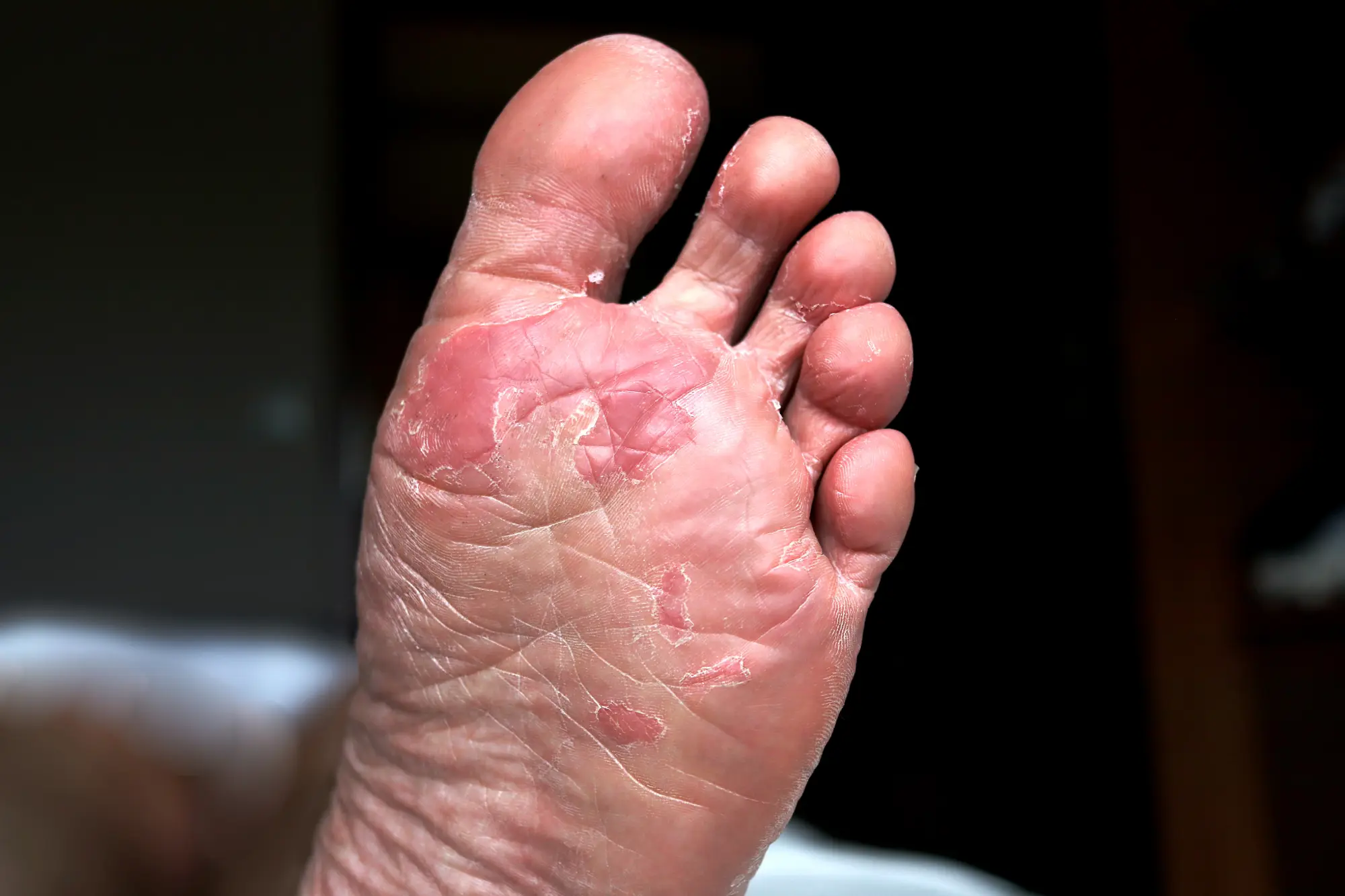
Fungal Infections
- Home
- Fungal Infections
Fungal Infections of the Skin and Nails Terre Haute & Vincennes
Fungal infections are common — but that doesn't mean they're harmless or easy to fix. From persistent rashes to stubborn nail changes, fungal infections can linger, spread, and affect daily life if left untreated.
At Biltmore Dermatology, we provide accurate diagnosis and targeted treatment for a wide range of skin and nail fungal infections — so you can stop the cycle of creams, confusion, and frustration.
Common Types of Fungal Infections We Treat Tinea Corporis (Ringworm of the Body)
Tinea corporis is a contagious fungal infection that causes round, scaly, red patches on the body. Despite the name, it has nothing to do with worms — it's caused by dermatophyte fungi that thrive on skin, hair, and nails.
Symptoms:
- A ring-shaped or circular rash
- Raised, scaly border
- Itching or discomfort
- Can spread through skin contact, clothing, or pets
Early treatment prevents the spread and clears the infection faster.
Tinea Pedis (Athlete's Foot)
Tinea pedis affects the skin of the feet — particularly between the toes — and can spread to the toenails or other parts of the body.
Symptoms:
- Itchy, cracked, peeling skin between the toes
- Redness, scaling, or blisters on the soles
- Burning or stinging sensations
- Foul odor in severe cases
Athlete's foot thrives in warm, moist environments like locker rooms, pools, and tight shoes. Without treatment, it can worsen or spread to the hands, groin, or nails.
Tinea Versicolor
Tinea versicolor is caused by yeast (a type of fungus naturally found on skin) growing out of balance, leading to discolored patches.
Symptoms:
- Light or dark patches (may appear white, pink, tan, or brown)
- Fine scaling on the surface
- Mild itching, especially in heat or humidity
- Common on the back, chest, neck, and upper arms
Tinea versicolor isn't dangerous — but it often recurs without proper management. Topical or oral antifungals can control and prevent flare-ups.
Treatment Options for Onychomycosis
Fungal nail infections are notoriously difficult to treat — especially once the fungus becomes embedded beneath the nail. Oral antifungal medications are often effective, but not every patient is a candidate due to potential side effects or drug interactions.
For those who prefer to avoid oral medications, laser therapy is also an option. While not covered by insurance, laser treatment offers a non-systemic alternative that may help reduce fungal load and improve nail appearance over time.
Early intervention gives the best chance of clearing the infection — especially before it spreads or worsens.
Why Professional Treatment Matters
Over-the-counter creams often aren't enough — especially for stubborn or deep infections. At Biltmore Dermatology, we take fungal infections seriously because:
- They can spread easily to others
- They can cause secondary bacterial infections if the skin becomes cracked or broken
- They can mimic other serious skin conditions (like psoriasis or eczema) and be misdiagnosed
Accurate diagnosis = faster, better treatment.
How We Treat Fungal Infections
Your treatment plan may include:
- Prescription-strength topical antifungals for skin infections
- Oral antifungal medications for stubborn or nail infections
- Scalp treatments if needed (in special cases)
- Guidance on skin care and hygiene to prevent reinfection
- Monitoring and follow-up to make sure the infection is fully resolved
We tailor every plan to your specific case — not just a one-size-fits-all cream.
Why Choose Biltmore Dermatology?
- 24+ years of dermatology experience
- Board-certified dermatology provider Ryan T. Patterson, NP-C, DCNP
- Precise diagnosis using clinical exams and laboratory testing
- Customized treatment plans for faster, more complete resolution
- Trusted by Terre Haute, Vincennes, and surrounding Indiana communities
When fungal infections refuse to go away — we don't just try harder. We treat smarter.
Don't Let a Fungal Infection Drag On
If you're dealing with a stubborn rash, discoloration, or nail changes, don't wait for it to "clear on its own." Fungal infections are easier to treat — and less likely to spread — when caught early.
No referral is needed. Walk in today. Stay for the care and expertise.
Come for answers. Come for healing. Come for the care.